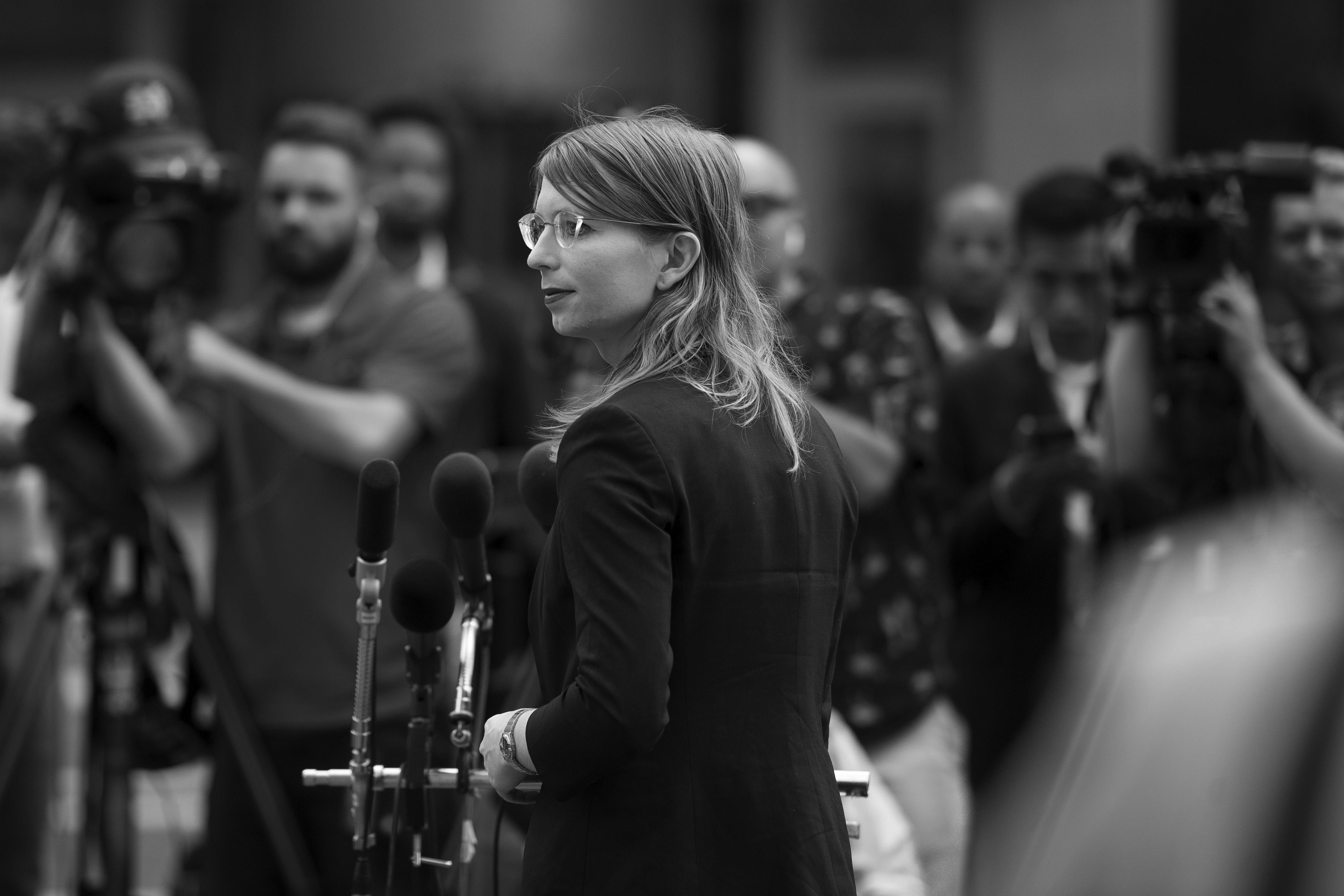Alexandria, VA — Today, Chelsea Manning and her legal team filed a Motion to Reconsider Sanctions, in which they ask Judge Anthony Trenga to release Chelsea from confinement, and ask that he modify the fines he imposed on her.
During the May 16th contempt hearing, Judge Trenga found Ms. Manning in contempt of court and ordered her confined for the term of the grand jury. Judge Trenga also imposed graduated fines to be assessed at $500 per day starting after 30 days of confinement, and jumping to $1,000 per day after 60 days, for as long as she refuses to comply with the court’s order to answer questions before the grand jury.
During that same hearing, Judge Trenga prevailed upon Ms. Manning to use her confinement as an opportunity to reflect on her principles and objections to the grand jury process. A letter from Chelsea filed with the court today represents her efforts to communicate those principles and objections clearly and completely to the judge, and to show him that she has in fact reflected on her convictions sincerely and at length.
Judge Trenga is asked to consider five important arguments in today’s court filing:
- A renewal of Ms. Manning’s motion for release, on the basis that she cannot be coerced, and that her incarceration is therefore only punitive. A sanction that serves only to punish her would convert what is intended as a civil coercive sanction into a criminal punishment, in violation of her 5th Amendment rights to due process.
- The government has now successfully obtained not one, but two indictments, without the benefit of or need for Chelsea’s testimony. Furthermore, as the government’s sixty-day window to add further charges prior to the submission of their extradition request is nearly over, the legitimacy of its purported need for Chelsea’s evidence is increasingly doubtful.
- The court may impose civil fines in order to coerce compliance with a court order – but not to punish disobedience with a court order. Coercive fines, however, are usually only applied to corporations, which cannot be jailed. Furthermore, such fines may not be imposed without the court confirming that the fines will not be excessive or punitive. This requires the judge to carefully examine the witness’s financial capacity, which was not done in this case.
- In the unusual event that fines are imposed on individuals, it is where the underlying contempt involves a refusal to comply with a court order about the management of large sums of money. There are no such facts in Chelsea’s case, and her lawyers believe that imposing any fine may be presumed to be definitionally punitive, rather than coercive.
- Although both fines and confinement are within the traditional contempt powers of the court, past cases suggest that these may be used one at a time, or one after the other, but a court should not impose both at once.
The government and Chelsea’s legal team are in agreement that witnesses held in civil contempt may be held for no more than 18 months total, even for contempts occurring before different grand juries. As a result, on May 29, 2019, the government joined Ms. Manning’s counsel in asking Judge Trenga to give her 62 days “time served” and to modify his order of confinement to the term of this grand jury minus the 62 days she already spent in confinement (for contempt before a previous grand jury proceeding).




